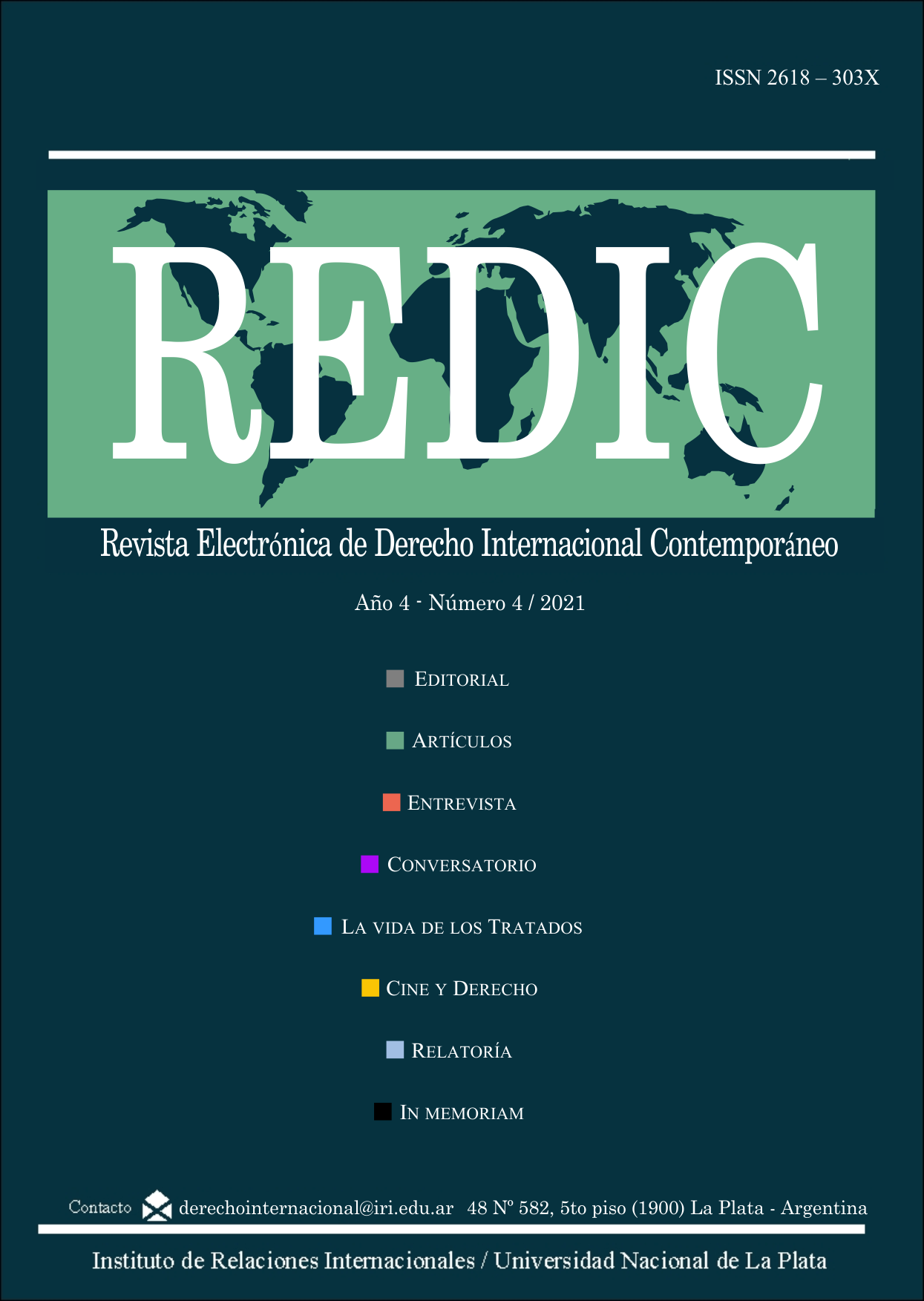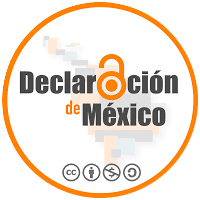The Antarctic Treaty in the sixtieth anniversary of its entry into force: origin and evolution
DOI:
https://doi.org/10.24215/2618303Xe028Keywords:
Antarctic Treaty, Antarctic Treaty System, AntarcticaAbstract
Sixty years after its entry into force, the Antarctic Treaty has proved to be and will continue to be a fundamental international legal instrument for the administration of the White Continent. This article explains how it originated, what it consists of and how it has evolved. Each of the articles of the Antarctic Treaty that constitute the principles and mechanisms of legal protection of Antarctica, as well as the main international instruments that make up the Antarctic Treaty System, are addressed using a descriptive methodology. The objective of the article is to provide the reader with an overview of such a complex treaty – one, however, that has transcended the rigors of the Cold War and has remained in force to this day. The main finding is that, despite the antagonistic interests that may exist with respect to Antarctica, the Antarctic Treaty with its sui generis regulations has allowed that continent to be used peacefully and for the sake of peace and science.
Downloads
References
Abdel-Motaal, D. (2016). Antarctica. The battle for the seventh continent. Praeger Press.
Antonello, A (2019) The Antarctic Treaty as a temporal order. Polar Record, 55(5) https://doi.org/10.1017/S0032247419000408
Arévalo Ramírez, W. (2020). Manual de Derecho Internacional Público, Fundamentos, Tribunales Internacionales y Casos de Estudio. Segunda edición. Tirant Lo Blanche.
Avango, D. (2017). Working geopolitics: sealing, whaling and industrialized Antarctica, en Klaus Dodds, Alan Hemmings y Peder Roberts (Eds.). Handbook on the Politics of Antarctica. Edward Elgar Publishing Limited.
Bruna, M. (2021). La protección del medioambiente marino antártico en el Sistema del Tratado Antártico. U-Antártica. Disponible en: https://drive.google.com/file/d/1k0CY6ytMwWT9TWx-U797sNtWG6uRHKsr/view
Cardone, I. J. & Fontana P. G. (2019). Latin-American contributions to the creation of the Antarctic regime. The Polar Journal, 9(2), 300-323. http://doi.org/10.1080/2154896X.2019.1685174
Conferencia sobre la Antártida (1959). Verbatim committee meeting transcripts, October–November. Conference on Antarctica, US Delegation Program Records, Record Group 43. College Park: US National Archives and Records Administration.
Corte Internacional de Justicia (1955) Aplication instituting procedings Reino Unido c. Argentina y Chile, 4 de mayo de 1955. Disponible en: https://www.icj-cij.org/public/files/case-related/26/026-19550504-APP-1-00-EN.pdf
Díaz, I. y Villamizar Lamus F. (2014). Uso pacífico de la Antártida como norma de ius cogens. Magallanes, 42(1), 17-31.
Dodds, K. (2009). La administración del continente polar: los orígenes geopolíticos del Tratado Antártico de 1959. Istor Revista de Historia Internacional, Año X, Núm. 38, 27-49.
Ferrada, L. V. (2012). Evolución del Sistema del Tratado Antártico: Desde su génesis geoestratégica a sus preocupaciones ambientalistas. Revista de Derecho, 18, Universidad San Sebastián, 131-151.
Ferrada, L. V. (2021). Seis décadas de paz antártica. En U-Antártica, disponible en: http://u-antartica.uchile.cl/seis-decadas-de-paz-antartica/. Consultado el 24 de junio de 2021.
Fitzmaurice, A. (2014). Terra nullius and the polar regions. En Sovereignty, Property and Empire, 1500–2000 (Ideas in Context, pp. 302-331). Cambridge University Press. https://doi.org/10.1017/CBO9781139924306.010
Gautier, P. (2018). Comentario sobre la evolución del Sistema del Tratado Antártico y el aporte de Bélgica al mismo, Reunión de la Sociedad Belga de Derecho Internacional “Arctic and Antarctic Regions: New Challenges for Ocean Governance”, Bruselas, 3 de septiembre de 2018.
Gordon, J., & Hansom, J.D. (1998). Antarctic Environments and Resources: A Geographical Perspective (1st ed.). Routledge. https://doi.org/10.4324/9781315845166
Hemmings, A. D. (2013). Environmental Management as Diplomatic Method. The advancement of strategic national interest in Antarctica (pp.70-89). En D. Ligget y A. D. Hemmings (Eds.), Exploring Antarctic Values, Gateway Antarctica Special Publication Series 1301.
Martin, S. (2013). A History of Antarctica. Rosemberg Publishing.
Scott, S. (2017). Three waves of Antarctic imperialism. En Klaus Dodds, Alan D. Hemmings y Peder Roberts (Eds.). Handbook on the Politics of Antarctica. Edwards Elgar Publishing.
Tuñez, F. (2015). Argentina y Antártida: Política exterior en el siglo XIX. Política Exterior argentina. Facultad de Ciencias Sociales. Universidad del Salvador. Argentina.
Villamizar Lamus F. (2017). Más allá de las fronteras: los horizontes geopolíticos de la Antártida. Ediciones Universidad Cooperativa de Colombia.
Villamizar Lamus, F. (2012). Tratado antártico y mecanismos de protección del territorio antártico. International Law, Revista Colombiana de Derecho Internacional, 10(21), 255-295. https://revistas.javeriana.edu.co/index.php/internationallaw/article/view/13700
Villamizar Lamus, F. (2013). Antarctic Treaty and Antarctic Territory protection mechanisms. Revista Chilena de Derecho, 40(2), 461-488.
Villamizar Lamus, F. (2020). Hacia la construcción de una geopolítica crítica de la Antártida. Algunas consideraciones desde la perspectiva de Latinoamérica. En Gisela da Silva Guevara (Ed.), Geopolítica latinoamericana: mirando al mundo desde el sur. Universidad Externado de Colombia.
Additional Files
Published
How to Cite
Issue
Section
License
Aquellos autores/as que tengan publicaciones con esta revista, aceptan los términos siguientes:
- Los autores/as conservarán sus derechos de autor y garantizarán a la revista el derecho de primera publicación de su obra, el cuál estará simultáneamente sujeto a la Licencia de reconocimiento de Creative Commons (BY-NC-SA) 4.0 que permite a terceros compartir la obra siempre que se indique su autor y su primera publicación esta revista, no se haga uso comercial, y si se remezcla, se transforma o se crea a partir del material, se debe distribuir bajo la misma licencia del original.
- Los autores/as podrán adoptar otros acuerdos de licencia no exclusiva de distribución de la versión de la obra publicada (p. ej.: depositarla en un archivo telemático institucional o publicarla en un volumen monográfico) siempre que se indique la publicación inicial en esta revista.
- Se permite y recomienda a los autores/as difundir su obra a través de Internet (p. ej.: en archivos telemáticos institucionales o en su página web) antes y durante el proceso de envío, lo cual puede producir intercambios interesantes y aumentar las citas de la obra publicada. (Véase El efecto del acceso abierto).





















